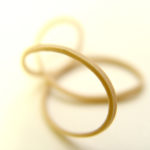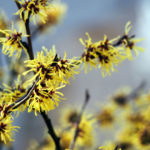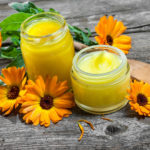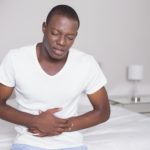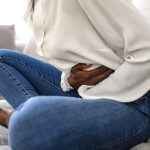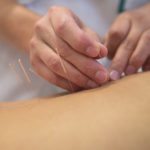Hemorrhoids Treatment
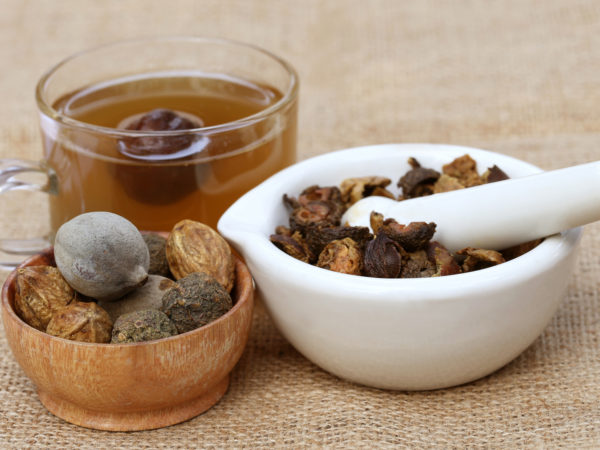
What are hemorrhoids?
Almost everyone is bothered at some time or another by hemorrhoids. Reports suggest that 75 percent of people will experience enlarged hemorrhoids at some point in their lives. The term refers to a condition that occurs when veins around the anus (external hemorrhoids) or just inside the anus (internal hemorrhoids) become distended and inflamed. They can cause a number of symptoms – usually just irritating, not dangerous, and treatable at home – but sometimes they can become infected or bleed heavily, prompting urgent intervention and even surgery.
What are the symptoms of hemorrhoids?
Depending on whether they are internal or external, these inflamed veins can cause itching, rectal bleeding, and pain that can sometimes be severe. The classic symptom of internal hemorrhoids is rectal bleeding. Most often it is usually noticed as bright red streaks on toilet paper, but blood can also be found on the stool, underwear, or in the toilet bowl. Internal hemorrhoids can sometimes bulge outside of the anus, rarely leading to the formation of a blood clot.
External hemorrhoids are more frequently associated with pain, and if irritated from straining or excessive rubbing or cleaning, may also itch and bleed. Blood clots – also known as thrombosed hemorrhoids – are more commonly formed in external hemorrhoids. They can often feel like a hard, painful grapelike lump on the anus, and sometimes need to be removed surgically.
What are the causes?
The most common causes of hemorrhoids are prolonged sitting, straining at stool, and constipation. Irritants in the diet can exacerbate hemorrhoids, including strong spices such as red pepper and mustard, and drinks such as coffee, decaffeinated coffee, and alcohol. Stress can cause hemorrhoids, as can pregnancy (due to pressure of the fetus in the abdomen, as well as hormonal changes that cause blood vessels to enlarge – these hemorrhoids usually disappear after delivery). Obesity, chronic diarrhea and anal intercourse can also lead to hemorrhoids.
What is the conventional treatment of hemorrhoids?
If natural home remedies for hemorrhoids (see below) don’t improve constipation, you can help lessen pressure and straining with bowel movements by taking an over-the-counter stool softener such as docusate sodium (Colace).
An effective natural symptomatic hemorrhoids treatment often recommended in conventional settings is the sitz bath: sit in a bathtub with enough warm water to cover the anal area for fifteen minutes several times a day. Application of warm compresses for 10 minutes at a time throughout the day can also offer similar relief. Local heat increases blood flow to the area, promoting healing.
Most hemorrhoids disappear on their own after a few days, some however, may become thrombosed and require surgical intervention to remove clotted blood; still others can persist becoming hard and painful. If the above home remedies for hemorrhoids are not effective, you may require more invasive hemorrhoids treatment options. One method is ligation, in which a rubber band is placed around the base of the hemorrhoid. The band cuts off blood circulation and, as a result, the hemorrhoid withers away within days. Another method is sclerotherapy – injection of a chemical solution around the blood vessel to shrink it. A third technique relies on infrared coagulation to destroy the hemorrhoid by burning. And lastly, a surgical procedure known as hemorrhoidectomy is occasionally recommended for extensive or severe hemorrhoids to completely remove them. All of these are last resorts for persistent or severe cases that do not respond to simpler methods.
What therapies does Dr. Weil recommend for hemorrhoids?
- Dietary changes: To prevent hemorrhoids as well as treat them, you should increase the amount of fiber in your diet in order to relieve constipation (and consequent straining, which increases pressure in the veins surrounding the anus). You can do this by eating plenty of fruits, vegetables and whole grains. If that’s not possible, take psyllium seed husks, in any of the forms available in drugstores and health-food stores. Drink lots of water, more than you think you need. Yet another healthy option is freshly ground flaxseed, a great source of both soluble and insoluble fiber in addition to omega-3 fatty acids and lignans. Flax helps promote bowel motility as well as softening stool. Try one to two tablespoons daily with food. Avoid dietary irritants as much as possible.
- Exercise: Regular exercise promotes bowel function and health.
- Supplements: Triphala, a combination of three tonifying herbs from the Ayurvedic tradition, is another excellent bowel regulator. You can buy it in capsules in health food stores. Follow the dosage and directions on the label. If you can tolerate it, try taking two to three ounces of liquid pure aloe vera juice – without additives – after meals.
- Also: Apply aloe vera gel to the anal area frequently; it feels good and promotes healing. Avoid tobacco use in all forms. Instead of dry toilet paper, use compresses of witch hazel (which acts as an astringent) to clean the anal area after bowel movements. You can get medicated witch hazel pads and towlettes at most drugstores.
Finally, many over-the-counter products are sold for symptomatic relief of hemorrhoids. Dr. Weil recommends avoiding those containing benzocaine or other topical anesthetics. Although it may contribute to the loss of marine species, Preparation H (which contains shark liver oil) is a safe and effective remedy.
SOURCES:
mayoclinic.org/diseases-conditions/hemorrhoids/basics/definition/con-20029852
health.harvard.edu/diseases-and-conditions/hemorrhoids_and_what_to_do_about_them
merckmanuals.com/professional/gastrointestinal-disorders/anorectal-disorders/hemorrhoids
familydoctor.org/familydoctor/en/diseases-conditions/hemorrhoids.html
ncbi.nlm.nih.gov/pubmedhealth/PMHT0024809/
niddk.nih.gov/health-information/health-topics/digestive-diseases/hemorrhoids/Pages/facts.aspx
Reviewed by Benjamin S. Gonzalez, M.D., May, 2016.


